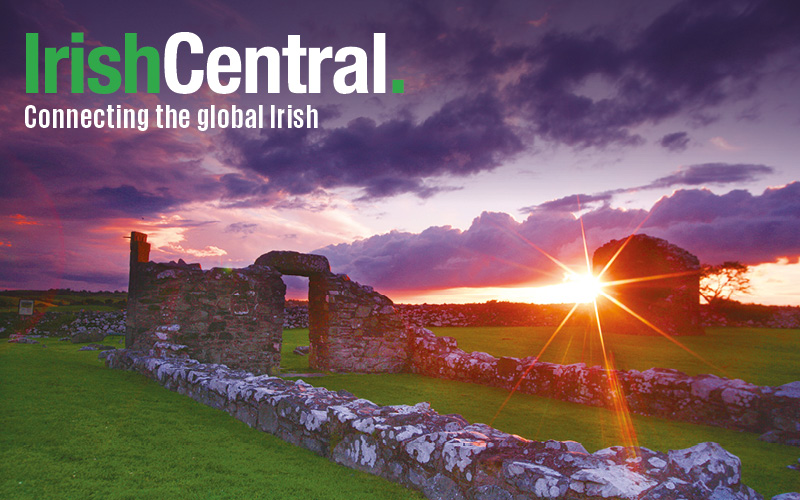| President John F. Kennedy lays a wreath at the John Barry Memorial in New Ross, Co. Wexford during his visit in June, 1963. |
If you’re traveling north from Dublin you’ll have to cross the border twice before you even reach it. Trains don’t run there; neither do major motorways.
When I was growing up the weather maps on the Northern Irish TV forecasts used to sort of just run out somewhere to the west of Derry. They still do.
If we had weather at all it was a ghostly affair. Neither Dublin nor Belfast wanted to contemplate it. Because for both jurisdictions Donegal was no man’s land, neither here nor there, neither north or south, apparently.
But not to us. We knew that if you took the time to visit Donegal your efforts would be rewarded in ways you couldn’t even begin to imagine.
That’s because the place itself is heart-stoppingly beautiful. Take just one afternoon walk and it will burn itself into your memory for the rest of your life.
That landscape will astonish you, because it seems to have been expressly crafted to inspire romantic poets and dreamers. Donegal is giant county, but the people who live there are flinty and formidable as mountain goats.
So it’s no small thing when a Donegal person takes you to their heart. Getting there, like getting anywhere in Donegal, can lead to a perilous climb, but oh the rewards.
I say all this from my own experience, of course. No one will love you like a Donegal man.
The twin pillars of Irish life (and of Donegal life, which is the same thing only more so) were familiar to me before I even knew who there were. As an infant I saw them watching over open hearths and cooking ranges.
Usually their faces were embossed on decorative plates with gold trimming. Sometimes red nightlights would burn under their chins.
They were Jesus and John F. Kennedy. Our Savior and our Apollo.
We didn’t call Jesus by his name, of course. That was considered an impermissible affront. We called him the Sacred Heart, because that seemed to suit our natures better.
They stood sentry over Irish life for years before I understood their import. The Sacred Heart was our local guardian and refuge, but who was JFK to us?
By my teenage years I had discovered what a thorny path you had to take to win a Donegal person’s affections, so who was this man with the preppy haircut on all the shiny plates?
JFK was different to the Sacred Heart in some instantly obvious ways.
For one, he was smiling. Usually pictured next to his Chanel suited wife in the pillbox hat, he would fix us all with that megawatt American smile that made such a contrast to the desperately sorrowful expression on the face of the Sacred Heart.
But there was something else. By positioning him with pride of place next to or very near the spiritual hearth light of Irish life, we were saying something very profound about who he was and what he meant to us.
Growing up in the 1980s, I found these plates embarrassingly kitsch. Frozen in time in the suits and fashions of the early 1960s, they had already started to look old hat in the new era of frosted bangs and shoulder pads.
And when I would say this aloud I would see jaws drop and hands reach out to clip me. It was exactly as if I had blasphemed the Sacred Heart.
When he visited Ireland in June of 1963 the whole country came out to see John F. Kennedy. It was the greatest thing to happen in the early modern Irish state.
In Donegal at the time we hardly had telephones. You would ring the main Post Office station to get a line to the outside world.
So we still lived in ancient times, and the man who spoke with the refined Boston accent showed us the future.
Perhaps one day it would be our future. He allowed us to dream.
What happened to him is as Irish as it is Greek. He flew too close to the hot sun that’s fueled by the anger and resentment of the people who believe they are born to rule America.
He was an Irish upstart, an outsider, and an impertinence. He was hated by the anvil-brained people who would later hate his family, and their long and distinguished legacy of social justice.
But in Donegal we knew he was on the side of the angels, and we placed him there to make the point. We still do.




Comments